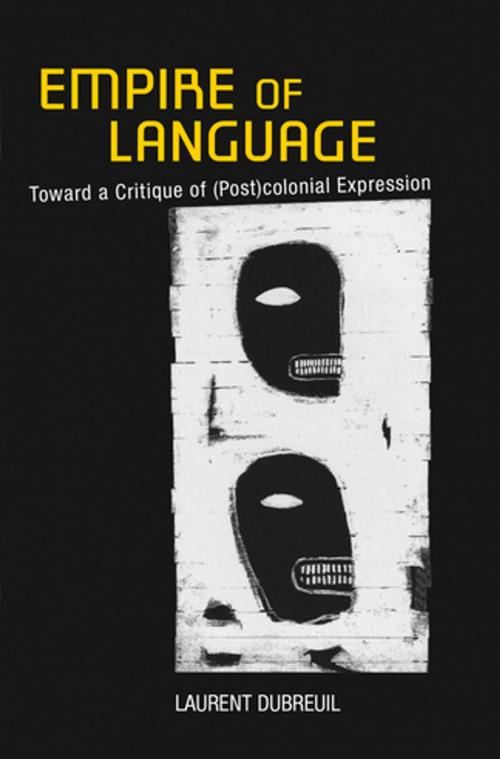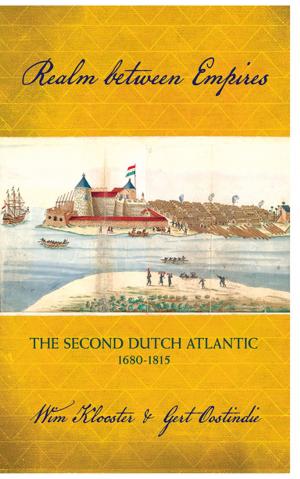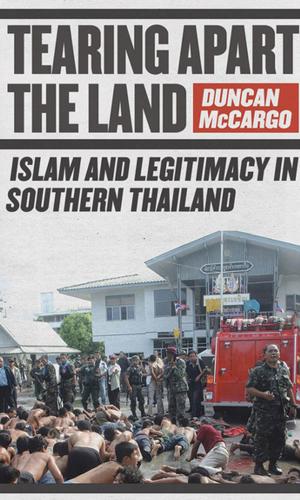Empire of Language
Toward a Critique of (Post)colonial Expression
Nonfiction, Social & Cultural Studies, Political Science| Author: | Laurent Dubreuil | ISBN: | 9780801467509 |
| Publisher: | Cornell University Press | Publication: | December 15, 2009 |
| Imprint: | Cornell University Press | Language: | English |
| Author: | Laurent Dubreuil |
| ISBN: | 9780801467509 |
| Publisher: | Cornell University Press |
| Publication: | December 15, 2009 |
| Imprint: | Cornell University Press |
| Language: | English |
The relationship between power and language has been a central theme in critical theory for decades now, yet there is still much to be learned about the sheer force of language in the world in which we live. In Empire of Language, Laurent Dubreuil explores the power-language phenomenon in the context of European and, particularly, French colonialism and its aftermath. Through readings of the colonial experience, he isolates a phraseology based on possession, in terms of both appropriation and haunting, that has persisted throughout the centuries. Not only is this phraseology a legacy of the past, it is still active today, especially in literary renderings of the colonial experience—but also, and more paradoxically, in anticolonial discourse. This phrase shaped the teaching of European languages in the (former) empires, and it tried to configure the usage of those idioms by the "Indigenes." Then, scholarly disciplines have to completely reconsider their discursive strategies about the colonial, if, at least, they attempt to speak up.Dubreuil ranges widely in terms of time and space, from the ancien régime through the twentieth century, from Paris to Haiti to Quebec, from the Renaissance to the riots in the banlieues. He examines diverse texts, from political speeches, legal documents, and colonial treatises to anthropological essays, poems of the Négritude, and contemporary rap, ever attuned to the linguistic strategies that undergird colonial power. Equally conversant in both postcolonial criticism and poststructuralist scholarship on language, but also deeply grounded in the sociohistorical context of the colonies, Dubreuil sets forth the conditions for an authentically postcolonial scholarship, one that acknowledges the difficulty of getting beyond a colonialism—and still maintains the need for an afterward.
The relationship between power and language has been a central theme in critical theory for decades now, yet there is still much to be learned about the sheer force of language in the world in which we live. In Empire of Language, Laurent Dubreuil explores the power-language phenomenon in the context of European and, particularly, French colonialism and its aftermath. Through readings of the colonial experience, he isolates a phraseology based on possession, in terms of both appropriation and haunting, that has persisted throughout the centuries. Not only is this phraseology a legacy of the past, it is still active today, especially in literary renderings of the colonial experience—but also, and more paradoxically, in anticolonial discourse. This phrase shaped the teaching of European languages in the (former) empires, and it tried to configure the usage of those idioms by the "Indigenes." Then, scholarly disciplines have to completely reconsider their discursive strategies about the colonial, if, at least, they attempt to speak up.Dubreuil ranges widely in terms of time and space, from the ancien régime through the twentieth century, from Paris to Haiti to Quebec, from the Renaissance to the riots in the banlieues. He examines diverse texts, from political speeches, legal documents, and colonial treatises to anthropological essays, poems of the Négritude, and contemporary rap, ever attuned to the linguistic strategies that undergird colonial power. Equally conversant in both postcolonial criticism and poststructuralist scholarship on language, but also deeply grounded in the sociohistorical context of the colonies, Dubreuil sets forth the conditions for an authentically postcolonial scholarship, one that acknowledges the difficulty of getting beyond a colonialism—and still maintains the need for an afterward.















